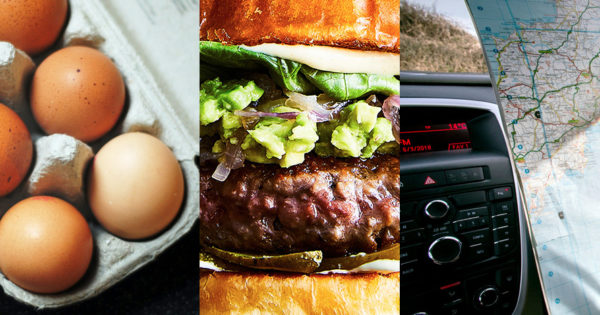6 Telling Marketing Stats, From the Incredible Edible Egg’s Comeback to Faux-meat’s Rise

While you were spending hours customizing your Facebook avatar to fill up the humdrum of your day or sniffing the intoxicating smells of Hawaiian Tropic sunscreen to mentally escape home, Adweek was hosting a virtual event centered on commerce brands that have innovated during the pandemic and was, as always, on the hunt for the week’s interesting data points.
Here are the 6 stats from the world of brands, marketing and advertising that grabbed our attention.
Beauty startup dropout
Demand for makeup and personal care products have plummeted during Covid-19, as neither have seemed particularly attractive for people covered up by face masks. According to a new report from market intelligence firm CB Insights, private market investment for startups in the beauty and personal care space fell in Q1 2020 by more than 50% compared to the previous quarter. And it’s not just the younger brands suffering a financial blow—cosmetic industry queens, like L’Oréal and Estée Lauder, have also reported declines in sales due to the pandemic’s impact.
Getting eggy with it
Can we offer you an egg in this trying time, America? Apparently, eggs are best served scrambled or sunny-side up sheltered at home—according to data from grocery retailer Kroger, U.S. consumers are buying 3.6 million more cartons of eggs per week than they were prior to the emergence of Covid-19. That’s about 43 million more eggs Americans are ingesting. Why? It might be because we are eating breakfast or baking more (or, because eggs are known for their immune-boosting properties). The American Egg Board has spent 43 years pushing protein-packed yolk, but 2020 has been the year that has proven that the Incredible Edible Egg still has the country’s heart.
Meat’s big beef
As the meat industry spends the pandemic attempting to dodge scrutiny and scandal, alternative meat brands are aggressively marketing their plant-based nutrition and earth-friendly messaging, leaning into their charitable programs and promoting new content and direct-to-consumer channels. The results? Faux-meat is winning quarantine, with sales up 454% in the week ending March 21 per Nielsen.
Sweet land of empathy
PepsiCo spoke with 5,000 consumers in March pre-shutdown and again in May well into our “new normal” about brand behavior during the pandemic. The survey found that not only do the vast majority of Americans—94%—believe empathy is important, but many (79%) also feel that empathy is even more crucial during the pandemic. Those surveyed also believe that the United States has become more empathic over the course of the health crisis—there was a 7% boost compared to March and May’s poll results. But, when it comes to whether brands should express empathy, consumers were at odds on how messaging should be reflected.
Quarantine is a highway
Per an ongoing biweekly survey taken by the U.S. Travel Association, whenever Americans are willing to jumpstart their business or leisure travel plans again, they’ll probably be driving to their destinations rather than taking a flight. More than 68% of U.S. residents said they’d feel safest traveling in their personal cars, compared to 12% who indicated they’d feel safe on an international trip. How much are these Americans willing to get behind the wheel to reach their hotels or Airbnbs? One-third responded that they would drive at least 300 miles—the farther the drive, however, the less willing Americans are to make the trip.
Vital insights gleaned from Essence magazine
Instead of spending its 50th anniversary gleaming in the celebratory spirit, Essence magazine has shifted its focus on the audience it has always lifted and served—31 million black women around the world—to provide them with information and support during the pandemic. The magazine recently conducted its first major study on the impact of Covid-19 on black women in the United States. Among other vital insights gleaned from the crucial resource, 85% of black women who are parents indicated in the survey that “there are not enough computers or laptops in their household to support the educational needs of their children.” Per Richelieu Dennis, founder and chair of Essence Ventures, parent company of Essence magazine, he hopes companies and organizations use the data to understand and develop efforts and services that will be the most beneficial for black women “as they continue to deliver leadership and impact to their households and communities during this crisis and beyond.”
https://www.adweek.com/brand-marketing/6-telling-marketing-stats-from-the-incredible-edible-eggs-comeback-to-faux-meats-rise/